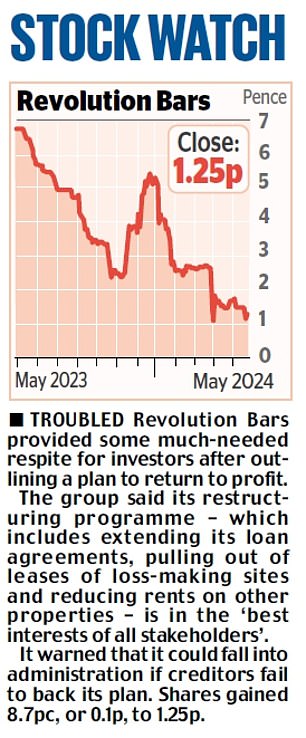MARKET REPORT: JD Sports is struggling because few spend a lot of money on clothing
JD Sports has had unprecedented success in getting young men and women to spend over $100 on the latest Nike sneakers.
But according to the retailer, business has been tough lately as customers seem less keen to spend big.
The FTSE 100 self-styled ‘King of Trainers’ said profits fell 8 per cent to £917 million in the year to February 3.
That was at the lower end of the £900 million to £980 million the company had previously forecast.
Sales rose 2.7 percent to £10.5 billion, rising in all regions except Britain, where sales fell 8.3 percent to £3.5 billion.
Tough times: The FTSE 100’s self-styled ‘King of Trainers’ said profits fell 8 per cent to £917 million in the year to February 3
The group said this was due to the sale of fashion companies no longer considered essential, such as Focus, GymNation and Hairburst.
Chief executive Regis Schultz said the increase in the group’s sales came “in what was ultimately a very challenging market”. He added that apparel revenues were slow because “young people want innovation,” as was the case with sports shoes.
The company is gearing up for a busy summer of sports, with sales of England football shirts up 35 percent compared to the same period before the 2020 European Championship, which was held in 2021 due to the pandemic.

JD Sports Stock fell 4.7 percent, or 6.3 cents, to 127.5 cents, bringing losses for the year to more than a quarter.
Laith Khalaf, head of investment analysis at investment platform AJ Bell, said: ‘One of UK retail’s biggest success stories, JD Sports, has found life a little trickier in recent years, and not just thanks to the pandemic.
‘While the youth demographic may not have been as directly affected by the cost of living crisis, there have ultimately been limits to their ability and willingness to drop hundreds of pounds on the latest set of must-have trainers.’
Mike Ashley’s fashion empire has increased its stake in Hugo Boss as the German brand’s share price plummets.
Sports Direct owner Frasers Group increased its shareholding to more than £300 million.
Last month, shares of Hugo Boss plunged 13 percent in one session after the company warned that demand in China had weakened. Frasers Group shares rose 0.7 per cent, or 6.5p, to 881.5p.
A company owned by the biggest investor in AB Foods has sold £262 million worth of shares in its Primark parent company at a small discount.
Howard Investments sold around 10.3 million shares at 2,550p each – around 4 per cent lower than the previous day’s closing price.
It is an offshoot of Wittington, AB Foods’ top investor, who together own 56 percent of the company. Both have promised not to sell any more shares in this financial year until September 14.
Shares in AB Foods fell 4.1 percent, or 110p, to 2550p.
The major markets ended the final trading session of the month in the green, with the FTSE 100 up 0.5 percent, or 44.33 points, to 8,275.38 and the FTSE 250 up 0.3 percent, or 59.25 points, rose to 20730.12.
Harbor Energy is nearing a deal to buy most of the oil and gas assets of Germany’s Wintershall Dea. The shares added 2.6 percent, or 8.4p, to 330p.
